Photographs: Amit Dave/Reuters Rediff Business Desk & Agencies
Also known as Exim (Export-Import) Policy, it is updated every year and several modifications and new schemes come into effect from April 1 of every year.
India needs to focus on exports to become a major player in world trade. The FTP takes into account measures to generate more exports and facilitate imports, which are vital for the economic development.
India's FTP seeks to enhance its global trade, offer incentives to exporters, expand markets to diversify trade, and create more returns and employment.
FTP assumes great significance this year as India's exports have been battered by the global recession. A fall in exports has led to the closure of several small- and medium-scale export-oriented units, resulting in large-scale unemployment.
Here's a quick look at what the crisis-hit exporters want from the new FTP, what the government might do and how this could help give a fillip to India's exports...
How Foreign Trade Policy will help boost exports
Image: Commerce Minister Anand Sharma.Photographs: Paresh Gandhi
The Foreign Trade Policy set to be unveiled on August 27 (Thursday) will be the first by Commerce Minister Anand Sharma.
Sharma recently met Finance Minister Pranab Mukherjee to discuss the details of the new five-year Foreign Trade Policy.
The new FTP is expected to help exporters struggling due to the recession in their traditional markets in the United States and the European Union through several incentives that are likely to be announced.
"We will announce more stimuli in the trade policy," Sharma said recently.
Stating that the government will take into consideration the needs of exporters, Sharma added that the focus of the policy would be priority sectors and employment intensive areas such as textiles, leather, gems, jewellery and handicrafts.
These sectors have been the worst hit due to a fall in demand.
The policy could also initiatives to be taken by the government for kick-starting talks with the World Trade Organization (WTO). Till now, the WTO talks concerning Indian's foreign trade could not make much headway.
India may also announce specific policy thrust for more bilateral or multilateral trade agreements with China and African and East Asian countries in its ensuing foreign trade policy.How Foreign Trade Policy will help boost exports
Image: A dock worker stands as a container is prepared prior to being loaded onto a ship at the Container Terminal at the Cochin Port.Photographs: Sivaram V/Reuters
India's exports fell for the ninth consecutive month in June to $12.81 billion. Exports in June saw a fall of 27.7 per cent than $17.73 billion a year ago.
Exports have seen a steady decline from October 2008 at an average rate of around 30 percent.
Imports during June 2009 were valued at Rs 90,657 crore ($18,977 million), representing a decrease of 29.3 per cent in dollar terms (21.2 per cent in rupee terms) over the level of imports valued at Rs 1,14,995 crore ($26,855 million) in June 2008.
The trade deficit for April-June, 2009 was estimated at $ 15,504 million which was lower than the deficit of $28,642 million during April-June, 2008.
How Foreign Trade Policy will help boost exports
Image: A worker dries thread for weaving handlooms at a textile mill in Agartala, Tripura.Photographs: Jayanta Dey/Reuters
"It is time to diversify our markets to buffer the impact of the slowdown and take us back on high growth trajectory. Africa and Latin America afford a huge opportunity, and it shall be my endeavour to intensify our economic engagement with the countries of this region," the commerce minister said.
The government may announce specific policy thrust for more bilateral or multilateral trade agreements with China and African and East Asian countries.
The foreign trade policy will ease up the process to refund duties to textile exporters, textile minister Dayanidhi Maran said.
"Duty drawback rates and anomalies in refund of duties affecting the viability of export will be addressed in the Foreign trade Policy," he said.
Sops likely on the export financing front
The FTP may announce incentives for market diversification as well.
Sharma had said that the government could help exports but demand from recession hit economies in the West will continue to plague India's exporters.
How Foreign Trade Policy will help boost exports
Image: An employee sifts diamonds at a diamond cutting and polishing factory in Surat.Photographs: Arko Datta/Reuters
Exporters battling the severe economic crisis want the foreign trade policy to offer direct incentives-such as cash support and tax exemptions to promote exports.
Huge competition and fall in demand from markets like the United States and the United Kingdom have hit exporters hard.
The Associated Chambers of Commerce and Industry of India has suggested a multi pronged strategy for accelerating India's export competitiveness.
Assocham said exports need to be brought to the subsidy net and urged the government not to subject exports to minimum alternate tax (MAT).
It has also has demanded allocation of incentives for creation of separate births on major ports and substantial reduction in existing freight trade.
How Foreign Trade Policy will help boost exports
Image: A worker uses a welding machine in a metal workshop at a railway yard in Mumbai.Photographs: Punit Paranjpe/Reuters
Assocham president, Sajjan Jindal said there is a need for exports subsidisation. He said we need to create more space for Indian products in markets like Africa, Latin America, Nepal, Sri Lanka, Bhutan, Burma, Bangladesh and Pakistan.
Jindal also called for export subsidies to be extended to Indian exporters by cutting down excise and local levies and other export duties including import duties on inputs required to make finished products for exports.
Assocham said India needs to push its exports to earn substantial foreign exchange since there is a huge difference between imports and exports of India. It need to correct trade imbalances in India's exports and imports.
Apex trade body Federation of Indian Export Organisations has, among other things, demanded a reduction in the taxes to help exporters to do their pricing competitively.
Export proceeds shouldn't be subjected to MAT as it amounts to various bureaucratic and hassles and encourages unnecessary government intervention and interference in a smooth flow of exports, the association said.
The government, said a Business Standard report, is also contemplating to work out an umbrella trade body, which could replace all other trade bodies for negotiating trade matters. Currently, there are numerous trade bodies and even a single sector has multiple trade organisations, according to sources.
The commerce ministry is also in favour of extending additional interest subvention to banks for lending to exporters. This means banks will be urged to finance exporters at a lower cost and the loss could be made good by government funding.
However, the Reserve Bank of India strongly opposes it since the government borrowing is much above last year's figures and the fiscal deficit is also a concern, sources said.
How Foreign Trade Policy will help boost exports
Image: The Reserve Bank of India logo.The industry body has also called for creation of separate births for export consignments in major and key ports as consignments are held up for days together unattended at ports due to lack of space.
Majority of India's ports are over congested, there is an urgent need to expand its capacity.
Export logistics are another area of concern. Freight rates are too high for export as there are different slabs for different products. The freight rate slab needs to be rationalised to boost India's exports.
The Chamber has sought the Reserve Bank of India's (RBI) intervention so that commercial banks and other financial institutions extend necessary export credit to exports at cheaper interest rates.
The exporters have also called for an exemption of taxes from payment of on all services utilised for exports. They also want quicker disbursal of refund of value added tax (VAT) paid by them.
How Foreign Trade Policy will help boost exports
Image: India currency notes.Duty Entitlement Pass Book Scheme (DEPB) was extended till May 2009.
Refund of tax on a large number of services relating to exports.
Income tax benefit to 100 per cent Export-Oriented Units (EOUs).
Coverage of Focus Market Scheme (FMS) was increased and additional 10 countries have been included. These are Mongolia, Bosnia-Herzegovina, Albania, Macedonia, Croatia, Honduras, Djibouti, Sudan, Ghana and Colombia.
Duty free import of samples was increased from Rs 75,000 to Rs 100,000.
Value of jewellery parcels, through Foreign Post Office raised to $75,000. Earlier it was from $50,000.
Export Oriented Units shall be allowed to pay excise duty on monthly basis, instead of the present system of paying duty on consignment basis.
Customs duty payable under EPCG Scheme has been reduced from 5 per cent to 3 per cent.
Setting up of a new Export Promotion Council for the telecom sector.


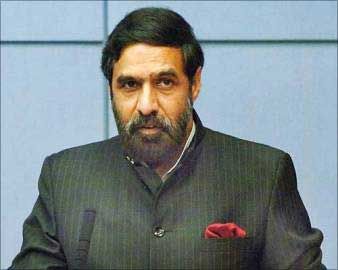
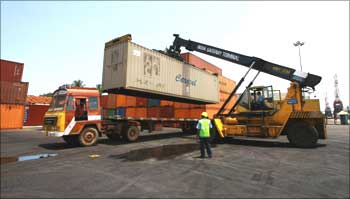
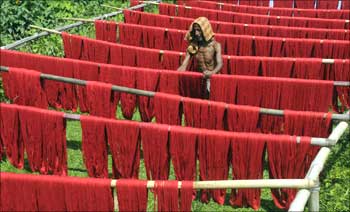


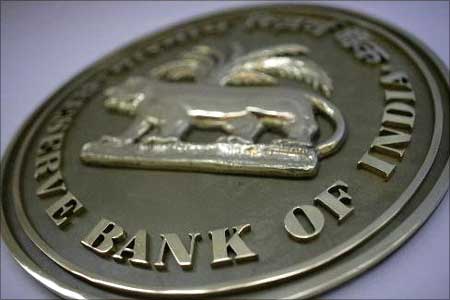
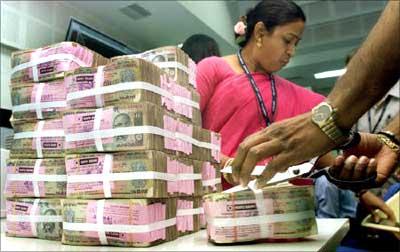
article